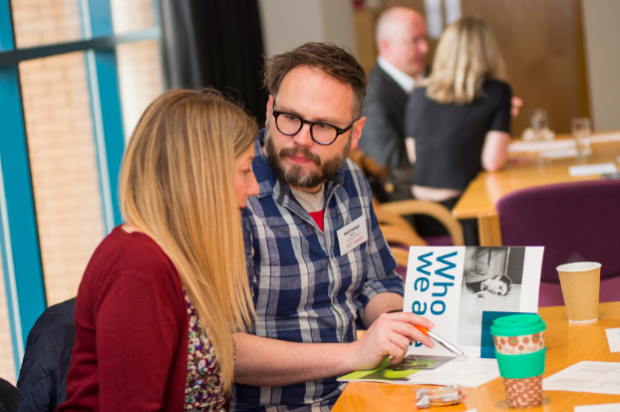![]() [Editor’s note: This guest post was written by Sarah Thirtle, Director of Business Support Programmes at Creative United, who are delivering the Prosper business support programme]
[Editor’s note: This guest post was written by Sarah Thirtle, Director of Business Support Programmes at Creative United, who are delivering the Prosper business support programme]
There’s a lot of discussion around resilience in the arts and creative industries, at a time when the number of students taking arts qualifications is declining and organisations are seeking to diversify their income in light of increasing competition for grants.

When we launched the Arts Council England-funded Prosper programme in 2017, we wanted to reach and connect with organisations of all shapes and sizes across England to learn about the changes they would like to see in their businesses. We then delivered a high-quality business support programme so they could achieve their goals and become more resilient in today’s changing funding landscape.
How libraries engaged with the Prosper business support programme
In March 2017 I wrote a piece for this blog on how the Prosper programme could benefit libraries who were keen to expand their enterprise efforts, and how to get involved.
On 12 September 2018 we published our report into the programme, revealing the high level of demand for business support from organisations across England’s creative and cultural sectors - from freelance designers to your very own library services.
Nearly six times the number of organisations registered an interest in the programme (416) than could be supported (70), and of those that completed an application (259), 4% of these came from libraries.
We were delighted to have been able to engage libraries within the programme given that generally they are part of larger organisational structures, including local authorities, rather than sitting squarely in the cultural sector.
Significantly, across the board latent demand for business support was discovered, with two-thirds of those completing an application having, not accessed business support in the previous two years.
The 70 organisations selected to participate in the programme could choose from a range of business support activities, but the overwhelming preference was for one-to-one support through business advisors - 91% of the 715 hours of support we delivered were spent in this way and client satisfaction was very high.
We were able to recruit a pool of Business Advisors with ‘sub-sector coverage’ that included libraries and their particular business drivers, such as audience and regional coverage, to work with Barnsley Library Services, Gateshead Council Library Services, Hammersmith and Fulham Library Services, Solihull Library Services and Somerset County Council Library Services.
Prosper’s routes to investment readiness
As a result of Prosper, we saw how organisations such as Salford Community Leisure Trust (SCLT), which manages and delivers sports, lifestyle, library and cultural services across 40 venues in Salford, Greater Manchester, were able to implement steps to become more ‘investment ready’.
For SCLT this was primarily through learning about and adopting a strategic approach to arts programming, which formerly had been planned without any overarching themes. By implementing a thematic coherence across an 18-month programming period, SCLT was able to make a much better ask of new funders and sponsors.
We don’t believe that grant funding alone offers a sustainable path of financial support for creative and cultural organisations but understanding of how to create the right mix of alternative approaches can be limited. So we created a suite of free resources available through the AMA’s CultureHive hub, such as Remi Harris’s guide to creating a funding mix and Mark Robinson’s collection of case studies on diversifying revenue streams.
We’re delighted to report that 18% of clients had launched a new product or service since the programme, and a further 50% planned to do so. Similarly, 17% had diversified their funding and a further 67% planned to do so.
The full findings of the report are available online. If you’re interested in the ways your library can improve its enterprise efforts, get in touch with Sarah Thirtle, Director of Business Support Programmes, sarah.thirtle@creativeunited.org.uk.
Note: Prosper was delivered by Creative United in partnership with the Centre for Business in Society at Coventry University and the Arts Marketing Association. Additional funding was received from Access – The Foundation for Social Investment, AMA, CBiS, Creative Scotland, Esmée Fairbairn Foundation, the Calouste Gulbenkian Foundation and the Heritage Lottery Fund.
---------------------------------------------------------------------
Please note, this is a guest blog. Views expressed here do not necessarily represent the views of DCMS or the Libraries Taskforce.